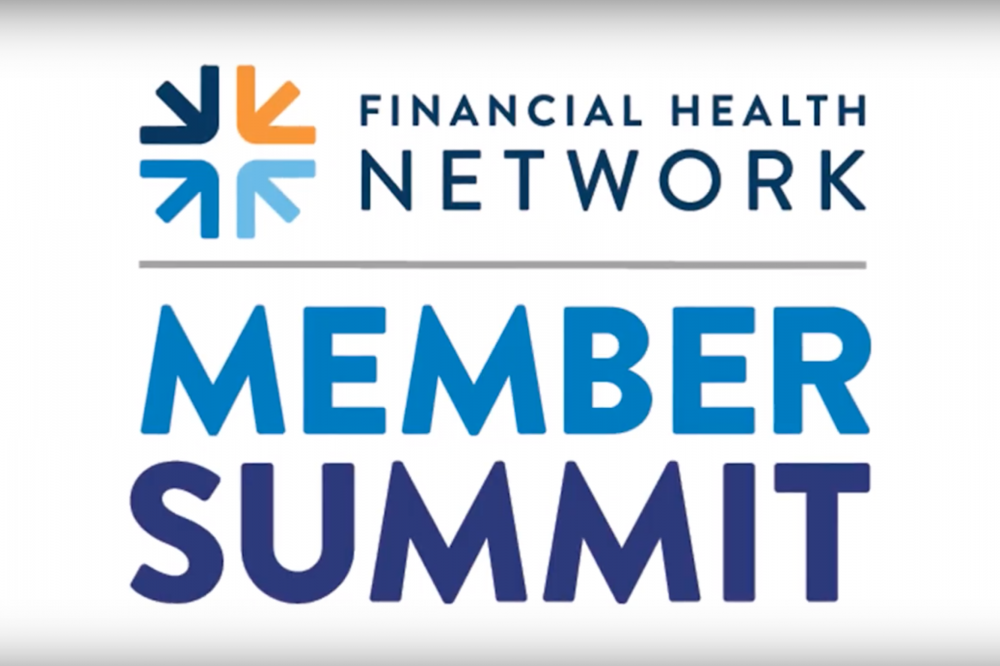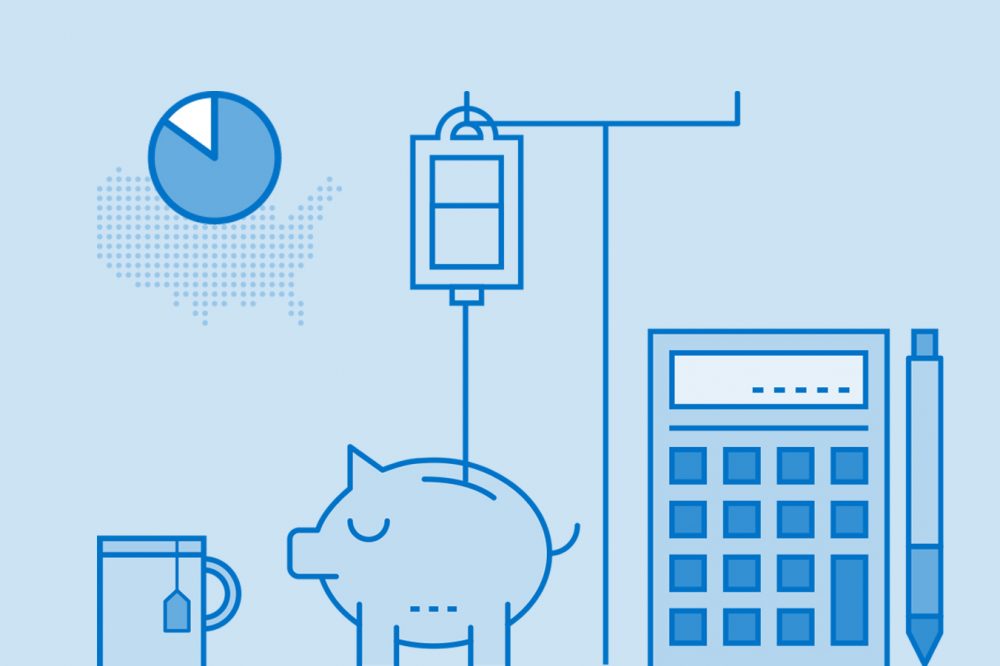Financial Health Solutions: Promoting Employee Financial Health With a Mobile App
When offered digital financial wellness tools, which workers use them most? Explore how various employee groups engaged with a mobile app rolled out by University Federal Credit Union in Austin, Texas.
EMERGE Scholarship 2022
Assessing Customer Financial Health Goes Beyond Product Offerings
Your current and future customers are seeking your help to improve their financial health. How will your support and guidance lead them to success?
Research
One Year into the Pandemic, Millions of Americans Still Struggling
Since the last Pulse survey in August 2020, more people are struggling to afford healthcare, which may lead to long-term health consequences beyond those created directly by COVID-19.
Fintech Innovation Leader Joins the Financial Health Network
Hannah brings a passion for financial health and knowledge of startups, nonprofits, financial services, and the fintech ecosystem at large. She will be responsible for the strategic direction of our Innovation practice, including the Financial Solutions Lab.
Financial Health Solutions: Increasing Savings with a Choice at Onboarding
How can employers encourage workers to build their savings? Even, an employer-based earned-wage access platform, partnered with the Financial Health Leaders Lab to test the impact of presenting savings as an active choice during onboarding to its app.
Dodging the Overdraft Bullet (So Far)
The economic shutdown and mandatory lockdowns forced many people to limit discretionary spending on retail, food, and entertainment, while stimulus checks and increased unemployment benefits improved financial health in the short term. This aided in a slow down of overdraft.
Building Valuable Customer Relationships Through Financial Health
While the vast majority of customers expect their primary financial institutions (PFIs) to help improve their financial health, few believe their PFIs are actually doing it.
Small Dollar Credit and Financial Health: A Policy Perspective
The Financial Health Network wrote this Policy Perspective that draws on our past small-dollar credit work to inform the conversation around recent regulatory actions.
Insurance: The Critical Missing Piece in Financial Well-Being
Provided by Franklin Madison, this research shows that obtaining life insurance can be key to achieving a healthy financial picture and to achieving lasting financial peace of mind.
Fintech for All: Closing the Generation Gap in a COVID-19 World
For older generations, who face the greatest health risks from COVID-19, the need to shift their financial management systems online is critical, but several key barriers deter older adults from adopting fintech products and services.
Strengthening the Student Safety Net During COVID-19
Even before the pandemic, the lives of financially struggling students were overwhelmingly complex. For financially vulnerable students, a disruption this large can have devastating long-term impacts, including failure to re-enroll once the pandemic ends.
Retirement Readiness: A Generational Perspective
By Steve Arves, Manager, Financial Health Network The economic fallout from the COVID-19 pandemic has taken an exacting toll on many people’s retirement savings. Over the last month, the stock market took its largest dip in years, wiping out trillions of dollars in savings overnight. While it’s too soon to say whether these losses will…
Member Summit: Fostering Financial Health Through Behavioral Change
Hear from Matt Wallaert, author of Start at the End: How to Build Products that Create Change, as he explains how your organization can help promote financial health through behavioral change.
Not Working: Coronavirus Exposes a Broken System That Fails Workers
By Beth Brockland Senior Director, Financial Health Network March 26, 2020 Reading about the coronavirus pandemic feels a little bit like watching the world unravel before our very eyes. Every day brings new stock market lows and emergency measures. At the same time, people all over the country are demonstrating remarkable acts of humanity, practicing…
Youth Finances in the U.S.: Stories of Adversity and Hope
Provided by Principal Foundation, this research reveals findings about the financial struggles of people ages 15-36 living in the United States, with a focus on low- to moderate-income individuals.
Trends in Financial Health: A Look Back on 2019
By Thea Garon, Director, Financial Health Network A few weeks ago, the Financial Health Network released new data from the U.S. Financial Health Pulse, a groundbreaking study designed to provide ongoing snapshots of financial health in America. Launched last year, the study draws upon consumer surveys and transactional data to assess how people are spending,…
Retronovation #4: Compartmentalizing Emergency Savings
Keeping a cache of savings for use in emergencies is hard. And it’s hardest for low and moderate income households whose incomes are often volatile and who thus need to tap emergency savings most often.
Retronovation #3: Installments to Tame Credit Card Debt
Installment loans’ appeal, in comparison to credit cards, are the fixed terms — a year or two or three — and equal payment amounts that automatically commit a borrower to paying off the debt.
Challenges Threaten the Financial Health of Low- to Moderate-Income 50+ and Require Innovative Solutions
By Andrew Dunn, Senior Associate, Financial Health Network For years, financial planners described the financial lives of individuals over 50 as following a predictable life cycle. The “traditional” path typically included diligently saving in an employer-provided retirement account, paying off a mortgage, then fully retiring while reducing expenses in order to live comfortably. However, this…
The U.S. Financial Health Pulse: Establishing a Baseline and Looking Ahead
In November, we released the inaugural 2018 Baseline Report which established a baseline to track changes in financial health over time. In 2019, we plan to build upon the foundation we laid this year.
Insuring the Way to a Financially Resilient America
Using a combination of survey data and consumer interviews, the Financial Health Network presents consumer trends and insurance product design strategies that can help Americans build financial resilience.
2018 Financial Health Leaders
The Financial Health Network’s Financial Health Leaders program recognizes members that are at the forefront of financial health measurement.
Financial Health at Work: A Prescription for Productivity
This infographic illustrates aspects and trends of employee financial health, from how financial stress at work hurts employee productivity to how investing in employee financial health is good for business.
2017 Impact Report: Financial Health: Building it Together
We are pleased to share our first-ever impact report highlighting the numbers and stories of progress behind our mission to improve the financial health of Americans.
A New Vision for Serving America’s Small Businesses
This paper examines the connections, similarities, and differences between consumer financial health and the financial health of small businesses.
Compass Principles: Transaction Product Examples
This one-pager gives examples of applying the Compass Principles to transaction products.
Consumer Data Sharing Principles: A Brief on the Framework for Industry-Wide Collaboration
Over the last two decades, the emergence of new intermediaries that aggregate data from numerous sources has enabled financial services providers of all kinds to provide consumers with a more complete view of their financial lives. – See more at: http://cfsinnovation.org/research/consumer-data-sharing-principles-a-brief-on-the-framework-for-industry-wide-collaboration/#sthash.oYX1cTQi.dpuf
Dispatch from D.C. — September 2016 Executive Summary
Dispatch from D.C. — March 2016 — Full Report
Case Study: Moving Beyond APR: How Oportun Re-Imagined the True Cost of a Loan so Customers Can Thrive
In partnership with the Financial Health Network, Oportun, a community development financial institution, have set about to understand and demystify the cost of credit that consumers face.
“PayGoal” by Neighborhood Trust Financial Partners
Can a workplace financial counseling program leverage mobile tools to boost the financial health of low-and-moderate income employees?
“LIFT-UP” by National League of Cities
LIFT-UP (Local Interventions for Financial Empowerment through Utility Payments) is a multi-city initiative overseen by the National League of Cities’ (NLC) Institute for Youth, Education, and Families designed to provide financial counseling to delinquent utility customers
Checking Accounts and the Financially Struggling Majority
U.S. Financial Diaries: Emergency Savings
Standard financial literacy curricula recommends that households should have at least three months of income set aside in emergency savings.
The New Market Development Initiative: Case Study
The Center for Financial Services Innovation (CFSI) has identified additional opportunities to improve consumers' financial health in areas including affordable housing, community college, and healthcare.
Know Your Borrower – The Four Need Cases of Small-Dollar Credit Consumers
An increasing number of Americans are turning to nontraditional credit sources for quick access to cash.
The Financial Health Network Comment Letter on CFPB’s Notice of Proposed Rulemaking Regarding Electronic Fund Transfers
The Financial Health Network believes that steps toward consumer protections for all GPR prepaid cards will ultimately benefit consumers by allowing them safe and trustworthy financial services to help them achieve financial health.
Stretch Time: Continuing to Reach for Financial Capability – Trends from the FCIF II
Driven to help households better manage their finances and attain financial stability, a number of nonprofits, financial services providers, and government agencies have turned to the concept of financial capability in the search for effective solutions.
The Financial Health Network Comment Letter on CFPB’s Prepaid Card Regulation
The Financial Health Network is submitting this letter in response to the request for comment by the Consumer Financial Protection Bureau on May 24, 2012.
The Financial Health Network Third Secured Credit Cards InBrief
The Financial Health Network led a consumer research study on secured card products, conducted with MasterCard and Blue Flame Consulting.
The Impact of Innovation – MACED Learning Brief
There are few affordable short-term, small-dollar credit products in the marketplace that meet borrowers’ immediate needs and that help put them on a path toward financial prosperity.
The Predictive Value of Alternative Credit Scores
Being “credit underserved” can have many unfortunate consequences. Learn how companies are designing new strategies that assess creditworthiness in innovative ways.
Highlights from the Inaugural Underbanked Financial Services Forum
This event underscored the business opportunities inherent in serving the underbanked market and identified opportunities to help move consumers along a pathway to savings.






























